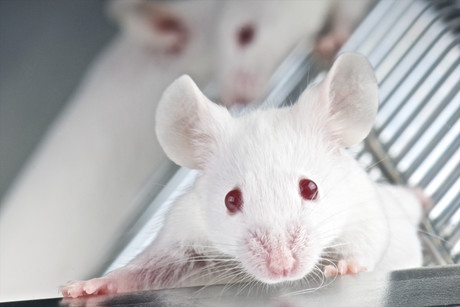Mice successfully immunised against multiple cancers

Researchers from Stanford University have found that injecting mice with inactivated induced pluripotent stem cells (iPSCs) launches a strong immune response against breast, lung and skin cancers, as well as preventing relapse in animals that had tumours removed.
To be effective, anticancer vaccines must introduce one or more antigens into the body that activate T cells or produce antibodies capable of recognising and binding to antigens on the surfaces of cancer cells. Ironically, one of the biggest challenges for cancer immunotherapies is the limited number of antigens that can be presented to the immune system at a given time.
Writing in the journal Cell Stem Cell, the Stanford researchers noted that cancer cells and embryonic tissues share a number of cellular and molecular properties, including antigens. This suggested to them that iPSCs — adult cells genetically reprogrammed to mimic embryonic stem cells — may be harnessed to elicit antitumour responses in cancer vaccines.
The researchers injected 75 lab mice with versions of a vaccine created from iPSCs that had been inactivated by irradiation. Created using the animal’s own cells, each vaccine simultaneously targets multiple tumour antigens. Using whole iPSCs eliminated the need to identify the most optimal antigen to target in a particular type of cancer.
Once the mice had been vaccinated, their immune systems built an immune response to the antigens on the iPSCs — and because of key similarities between the iPSCs and cancer cells, the animals simultaneously built an immune response against cancer. According to lead author Joseph C Wu, the iPSCs seemed to “prime their immune systems to eradicate tumour cells”.
Within four weeks, 70% of the vaccinated mice fully rejected newly introduced breast cancer cells, while the remaining 30% had significantly smaller tumours. The effectiveness of the iPSC vaccine was also validated for lung and skin cancers.
“We present the immune system with a larger number of tumour antigens found in iPSCs, which makes our approach less susceptible to immune evasion by cancer cells,” Wu said.
The researchers also combined iPSCs with an immunity booster — a snippet of bacterial DNA called CpG that has been deemed safe in human trials. Study co-author Ronald Levy previously found CpG to be a potent tumour-fighting agent.
“What surprised us most was the effectiveness of the iPSC vaccine in reactivating the immune system to target cancer,” Wu said. “This approach may have clinical potential to prevent tumour recurrence or target distant metastases.”
The researchers propose that in the future, a patient’s skin or blood cells may be reprogrammed into iPSCs and administered as an anticancer vaccine. It could also be used as a follow-up booster after surgery, chemotherapy or radiation therapy.
Stem cell experiments conducted in space
Scientists are one step closer to manufacturing stem cells in space — which could speed up...
Plug-and-play test evaluates T cell immunotherapy effectiveness
The plug-and-play test enables real-time monitoring of T cells that have been engineered to fight...
Common heart medicine may be causing depression
Beta blockers are unlikely to be needed for heart attack patients who have a normal pumping...




